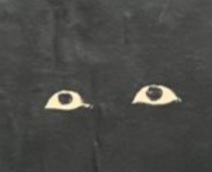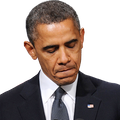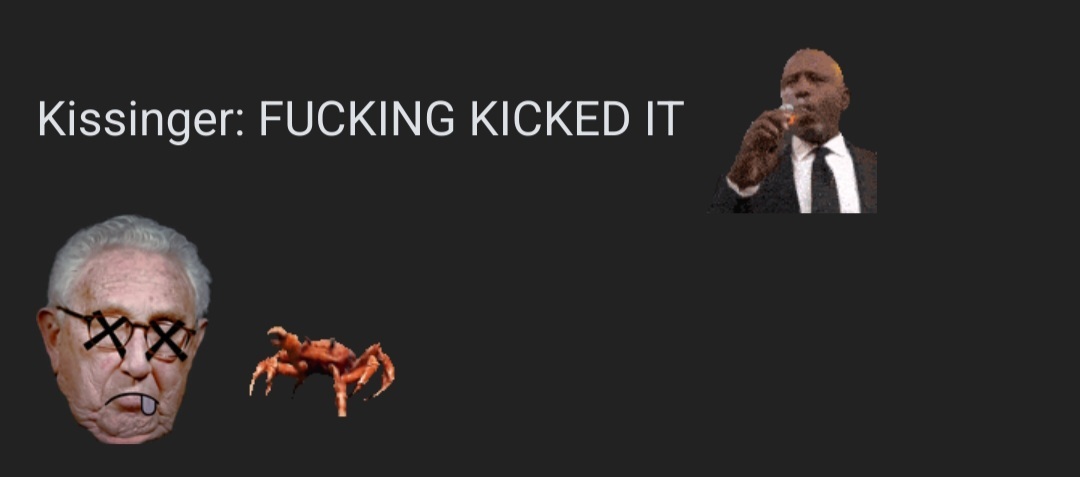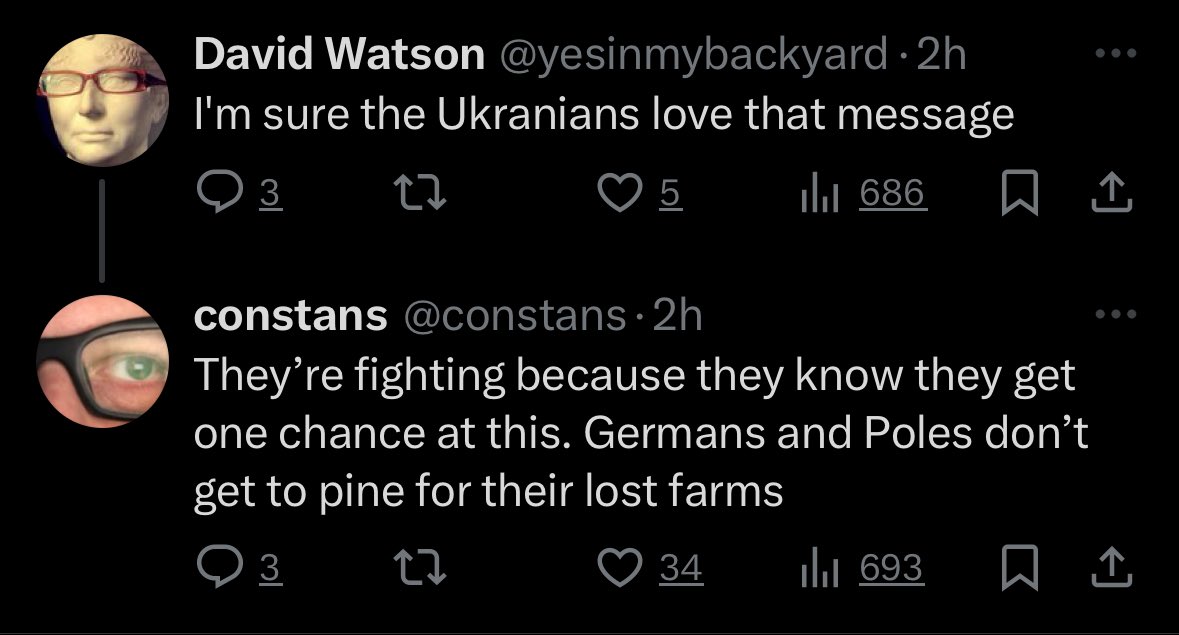weeen [any, any]
- 5 Posts
- 30 Comments

 6·2 months ago
6·2 months agoC2DE isn’t a party, it’s just a social classification

 12·2 months ago
12·2 months agoWorryingly, young people in the U.K. (ages 18-34) also have the highest levels of support for communism (29 per cent) and fascism (19 per cent) among the four countries.
yeah those are both equally worrying!

 31·2 months ago
31·2 months agoIt feels like if France had a colony in eastern europe

 12·2 months ago
12·2 months agoyeah, I just wanted to show how insane this tactic of ‘incite violent pogrom over lies -> “well what about their CONCERNS”’ is, and it’s just normal for a VP candidate to be doing this.
But this guy is so awkward even his nazi rhetoric tweets feel awkward to read… Dude…I’ve always liked you
 but come on… we need to build the ethnostate
but come on… we need to build the ethnostate 

 21·2 months ago
21·2 months agoOne day I’ll write a title without making a mindless mistake


 28·2 months ago
28·2 months agoThe reddit thread in reaction to that data was hilarious, the amount of cope…
How dare you suggest that I, the prestigious software developer, am not is the backbone of society?

 16·2 months ago
16·2 months agoYeah I already saw someone post about that so I wanted to share this bit of history behind it, those 900 are just the tip of the iceberg.

 6·2 months ago
6·2 months agoApparently you have to ‘break in’ the algorithm by liking certain TikToks, I never got it to work though

 9·2 months ago
9·2 months agoThe next Republican candidate would probably have an advantage, since the Trump supporters have a cuckoo reputation

 6·2 months ago
6·2 months agoI’ve been recommended ‘John Brown, Abolitionist’ by David S. Reynolds and ‘John Brown, a biography’ by W.E.B. DuBois but I haven’t read them yet🥲 the former is about twice as long as the latter
Preface of the Reynolds:
spoiler
A word about my subtitle. The Abolitionist John Brown (1800-1859) did not end American slavery. The Thirteenth Amendment, ratified by the states six years after his death, did that. But he can be said to have killed slavery in the way described by his contemporary Wendell Phillips, who said that after Brown’s raid on Harpers Ferry, Virginia, slavery was like a fallen pine, still green but dying. In a speech at Brown’s funeral Phillips declared, “John Brown has loosened the roots of the slave system; it only breathes,—it does not live,—hereafter.” “Kill” is an apt word for Brown, who went to murderous extremes, unlike other Abolitionists, most of whom were pacifists who disavowed violence. By the same token, Brown did not cause the Civil War, which resulted from a host of social, political, and cultural forces. But he sparked the war to a degree that no other American did. “Begin” is the word Frederick Douglass chose: “If John Brown did not end the war that ended slavery, he did, at least, begin the war that ended slavery.”
The immediate trigger of the war, of course, was the South’s secession after the election of Lincoln. But the choice of Lincoln itself was influenced by the hostilities inflamed by Brown. The Republicans, tarred by their opponents with responsibility for Harpers Ferry, tried to calm sectional animosities by choosing the moderate dark horse, Lincoln, over more controversial candidates. Southern extremists, meanwhile, manipulated the panic over John Brown’s raid to add fuel to the anti-Northern frenzy that led to the splintering of Lincoln’s opponents into three parties, thereby ensuring his election and bringing on secession.
The polarized passions created by Brown’s attack on Harpers Ferry, then, contributed to the election of Lincoln. One might posit that a Lincoln presidency would not have existed without John Brown.
Lincoln at first shrank from waging a war for emancipation, which he said would be “a John Brown raid, on a gigantic scale.” But is there any question that Lincoln and his generals did not, in effect, end up following Brown’s lead by condoning God-ordained violence? Think about Sherman’s march, and then reconsider those who criticize Brown for using violence in the name of a higher political and religious cause.
John Brown planted seeds for the civil rights movement by making a pioneering demand for complete social and political equality for America’s ethnic minorities. To be sure, many other Americans have contributed to civil rights. But only one white reformer lived continuously among blacks, penned a revised American constitution awarding them full rights, and gave his life in a violent effort to liberate the slaves. That’s why the Second Niagara Movement (which became the NAACP), the forerunner of the civil rights movement, hailed Brown as one “who had no predecessors, and can have no successors.” And that’s why no other white person in American history has been more beloved over time among African Americans than John Brown.
It may be discomfiting to think that some of America’s greatest social liberties sprang in part from a man who can be viewed as a terrorist. But John Brown was a man not only of violence but of eloquence and firmness of principle. His widely reprinted declarations against slavery impressed the intellectual leaders Ralph Waldo Emerson, who said Brown’s speech to Virginia court was as great as the Gettysburg Address, and Henry David Thoreau, who declared that Brown’s words were more powerful than his rifles.
Besides, Brown saw slavery as a state of war against an entire race. Sometimes a social evil is so egregious, so entrenched, that violence is the only answer. For those of John Brown’s moral vision, American slavery—a system of oppression, torture, rape, and murder—had to be eliminated by any means. As it was.
John Brown declared that slavery would end only after “verry much bloodshed” [sic]. Unfortunately, he was right.
Preface of DuBois:
spoiler
After the work of Sanborn, Hinton, Connelley, and Redpath, the only excuse for another life of John Brown is an opportunity to lay new emphasis upon the material which they have so carefully collected, and to treat these facts from a different point of view. The view-point adopted in this book is that of the little known but vastly important inner development of the Negro American.
John Brown worked not simply for Black Men—he worked with them; and he was a companion of their daily life, knew their faults and virtues, and felt, as few white Americans have felt, the bitter tragedy of their lot. The story of John Brown, then, cannot be complete unless due emphasis is given this phase of his activity.
Unfortunately, however, few written records of these friendships and this long continued intimacy exist, so that little new material along these lines can be adduced. For the most part one must be content with quoting the authors mentioned (and I have quoted them freely), and other writers like Anderson, Featherstonhaugh, Barry, Hunter, Boteler, Douglass and Hamilton.
But even in the absence of special material the great broad truths are clear, and this book is at once a record of and a tribute to the man who of all Americans has perhaps come nearest to touching the real souls of black folk.
someone in Germany stubs their toe
the polls:

In the UK, climate activists got 5 years for planning a protest right before thr barely policed race riots.
The first top comment I saw on reddit discussing the riots was saying that it’s actually muslims’ fault for bringing their incompatible, violent ‘sand religion’ to the UK. Nothing good will come out of this country.
If that happens at least we’ll all be dead pretty quick… My main fear is climate change, because it will first affect the people who barely contributed to it and are already suffering, while the people who contributed because of greed will be safe for much longer.
Capitalism is the root of climate change but the west will probably turn to ecofascism to protect it, I just want the oppressed to see retribution but I don’t have any hope for the near future
(…) is bad, actually
Someone posted a Shinzo Abe death meme on twitter, then came the ‘Making fun of someone’s death is bad, actually’ civility lib

spoiler
lmao I just got this tagline


 22·3 months ago
22·3 months agoThank you, I was getting tired of owning them by studying my favourite wikipedia page https://en.wikipedia.org/wiki/List_of_fallacies?wprov=sfla1. I told them that China was doing a streisand effect by whataboutisming their population with propaganda (appeal to fear) and they couldn’t even respond.

 37·3 months ago
37·3 months ago‘other foreign actors’


 70·3 months ago
70·3 months agoAmerican politics is just splitting people into two groups and convincing both that the other group will destroy the country if it gets in power




21% of reform is even more insane, we could form a British ACP to split their vote